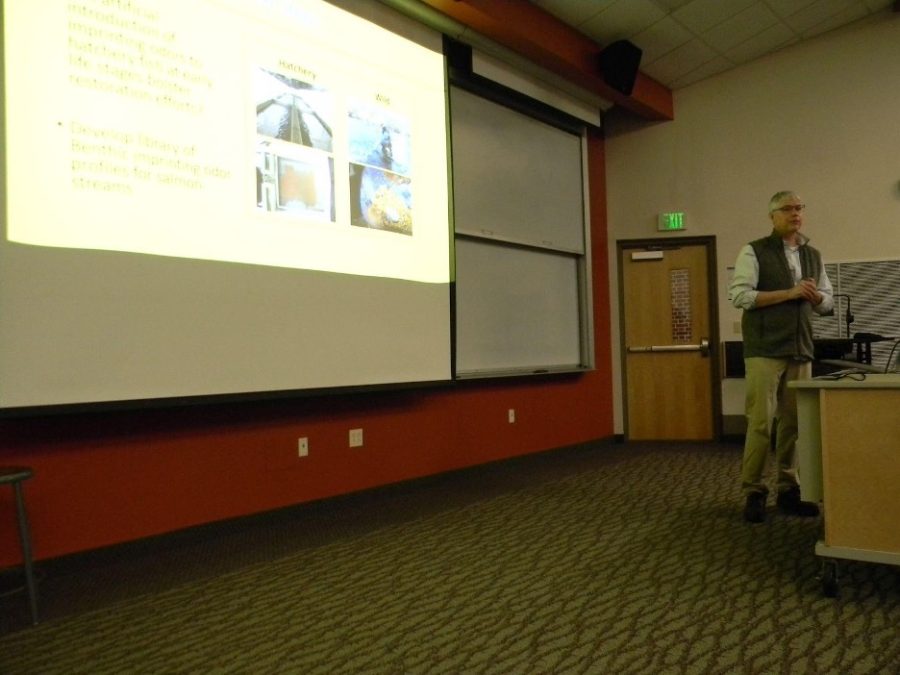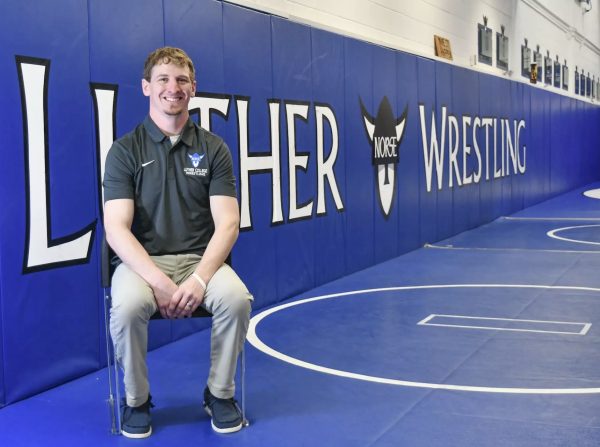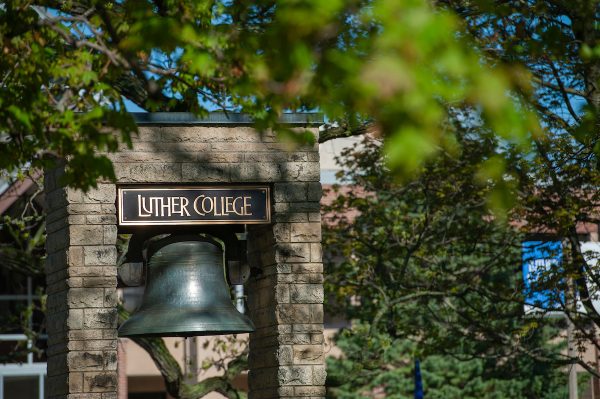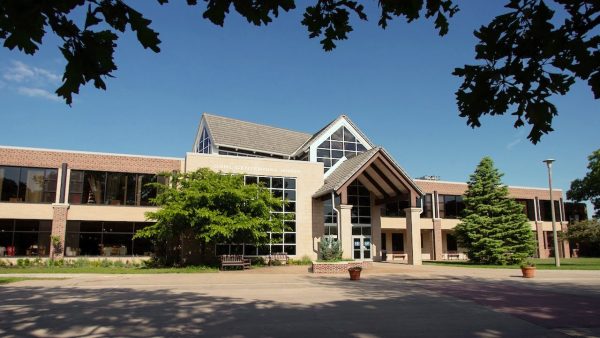Luther Hosts Arden and Mauldin of USFWS for Biology Colloquium
On Thursday, March 2, the Biology Department hosted Will Arden and Louise Mauldin of the U.S. Fish and Wildlife Services (USFWS) Center for this month’s Biology Colloquium in Valders 206. Hosted by Professors of Biology Kirk Larson and Eric Baack, the speakers were given the opportunity to share their research on fish migration in the Midwest. Baack explained how this month’s Colloquium differed from past events.
“This particular Colloquium was a nice combination of a fundamental talk about how fish return to their home environment after they go to the ocean, along with some practical things that they [the USFWS] are doing to help fish here in the Midwest,” Baack said.
Arden began the lecture by mentioning his ties to Luther, as an assistant biology major from 1999-2001. From there, Arden has served in the Fish and Wildlife Service for twenty-two years. During this time, he has worked to remove and modify barriers to restore hydrology and reconnect fragmented habitats for native fish and mussel species in the Upper Midwest.
Arden specifically worked to restore the Atlantic salmon population, but first he needed to study the species’ biology to find a better way to conserve their population. Through his research, Arden learned that Atlantic salmon had the ability to imprint amino acids on their olfactory bulb, which helped them navigate and return to their home environment.
During her presentation, Louise Mauldin explained the importance of community within fishes’ habitats. With the deconstruction of dams, thousands of more miles of river are open for fish to reproduce and migrate. Mauldin began to explain the mission of the National Fish Passage program which was initiated in 1999.
“The mission of our program is to restore and improve passage for target aquatic species by reconnecting habitats that have been fragmented by barriers such as temperature, physical barriers, and the like,” Mauldin said. “This program has very good progressional support. These partnerships include local communities and federal and state agencies.”
Biology major Brianna Highum (‘23) has an interest in the scientific study of fish migration and found both Arden’s and Mauldin’s to be very captivating.
“I was really drawn towards Dr. Arden’s study on the migration of salmon,” Highum said. “I thought it was so fascinating learning about the salmon’s ability to imprint amino acids on their olfactory bulb.”
At the end of the presentation, students in attendance were encouraged to ask about getting involved at U.S Fish and Wildlife Services’ booth in the career fair. For more information regarding migration policy, visit U.S. Fish and Wildlife Service.gov.






